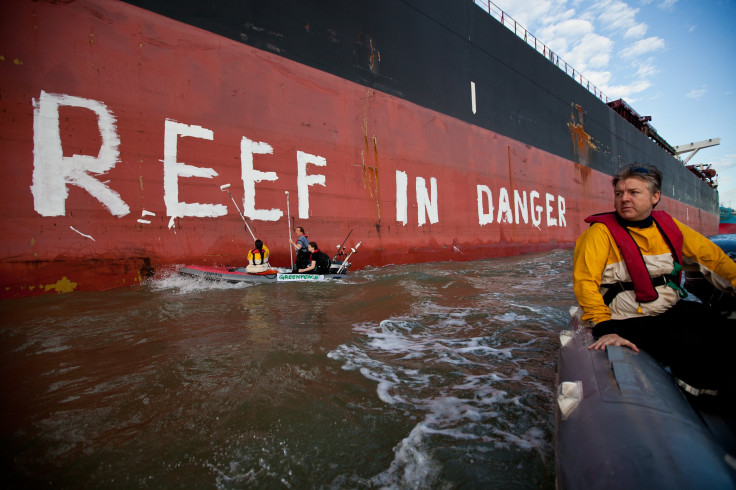Is The Great Barrier Reef Really Dying? How Farm Chemicals And Sediment Affected Australia's Ecosystem

Just days after researchers announced the largest-ever recorded die-off of the Great Barrier Reef, a government report to UNESCO released Thursday noted that farm chemicals and coastal sediment flowing into the waters were the biggest threats to the continued survival of the extensive ecosystem.
The report, which was meant to show that the reef didn't need to be put on an “in danger” list, indicated that there were some real and pressing issues for the 1,400-mile-long reef off the coast of Australia. The Great Barrier Reef, located off the western shore of Australia, is the world’s largest collection of coral reefs and contains 400 types of coral and thousands of species of fish and mollusks.
While grim in itself, the report also neglected to mention a plan to construct one of the largest coal mines in the world 200 miles inland, according to the New York Times. That coal mine, a recently approved $17 billion project that could produce as much as 60 million tons of coal a year, could present further risks for the reef in the form of toxic flows from the mine or coal burning.
Scientists recently found that a large, 435-mile-long section of the Great Barrier Reef lost 67 percent of its shallow-water corals in just one year. The loss was perpetuated by rising sea temperatures, which, in turn, caused the coral to expel algae. The process, which left the coral white afterward, is commonly referred to as bleaching.
“Most of the losses in 2016 have occurred in the northern, most-pristine part of the Great Barrier Reef. This region escaped with minor damage in two earlier bleaching events in 1998 and 2002, but this time around it has been badly affected,” Terry Hughes, the director of the Australian Research Council Centre of Excellence for Coral Reef Studies at James Cook University, said in a news release accompanying those findings.
Coral reef die-off is expected to continue as the effects of climate change are felt around the globe. Climate change, caused by human greenhouse gas emissions, is expected to raise water temperatures and temperatures in the Earth’s atmosphere.
© Copyright IBTimes 2024. All rights reserved.












